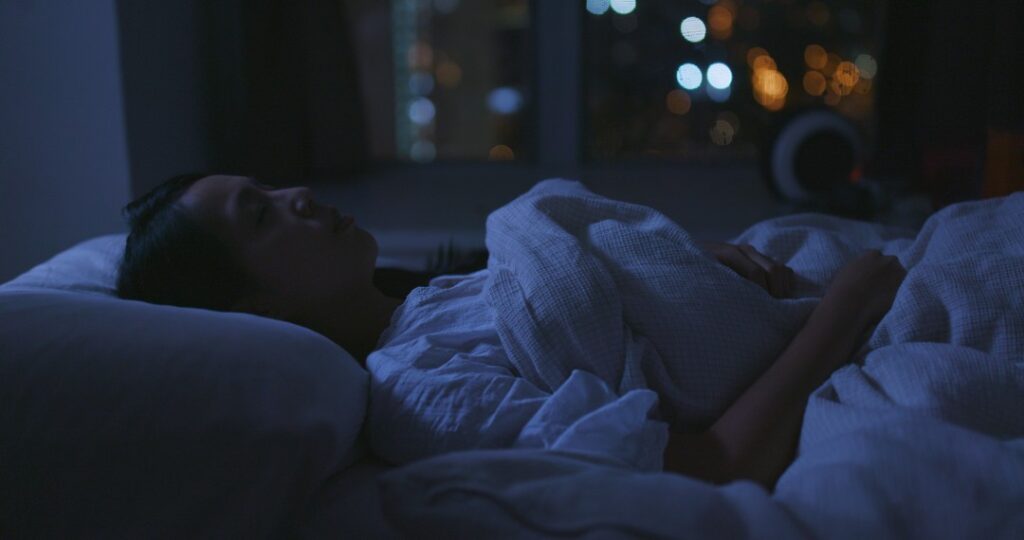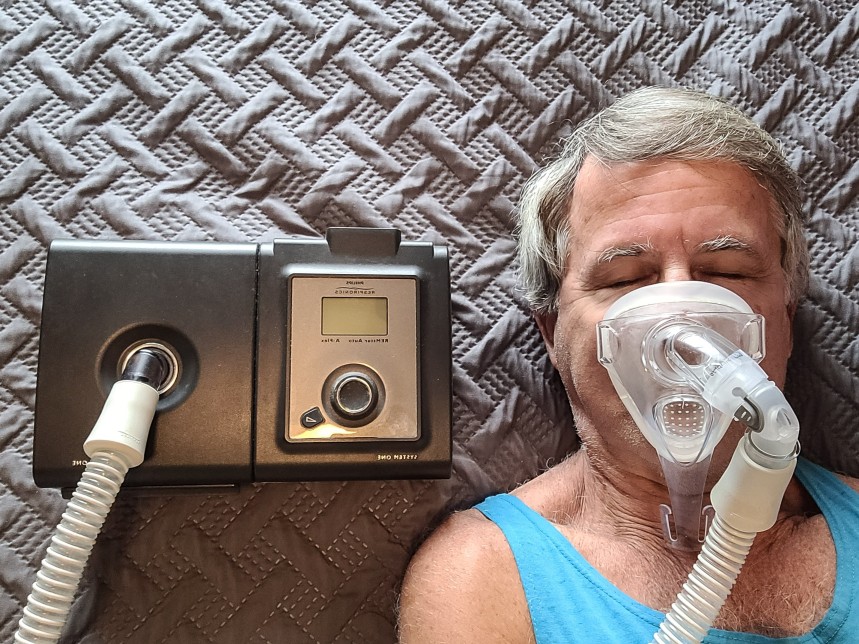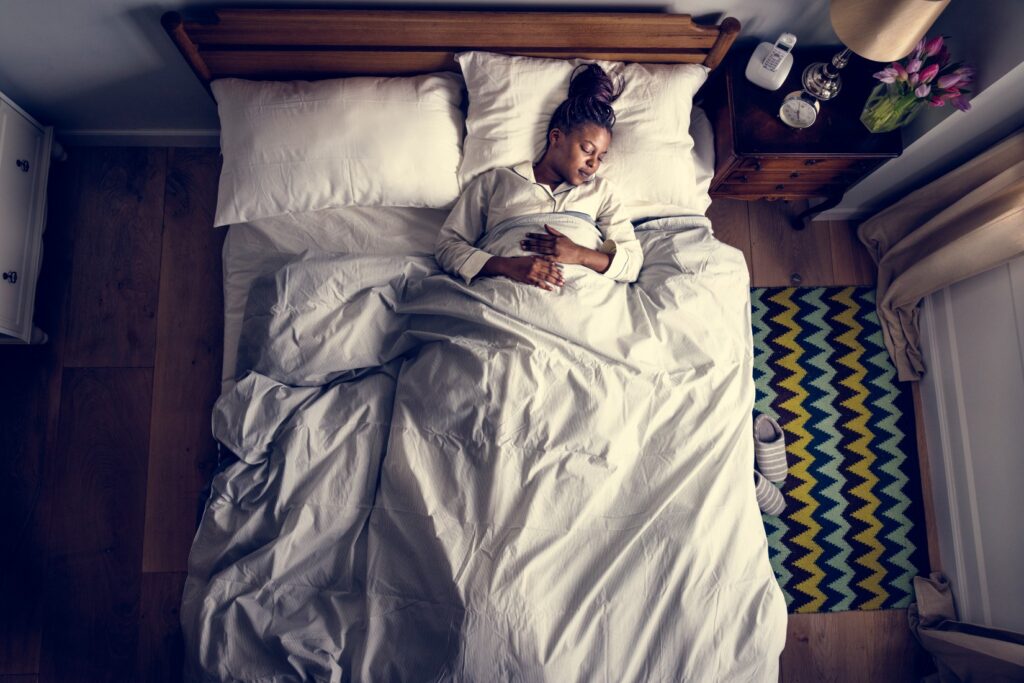How Sleep Impacts Your Health: Tips to Get Better Sleep
Aug 08, 2022
Your behaviors during the day, and especially before bedtime, can have a major impact on your sleep. They can promote healthy sleep or contribute to sleeplessness. So, how much sleep is healthy? If I’m not sleeping, is that a sign of sleep disorders? Do I have sleep apnea?
Your daily routines – what you eat and drink, the medications you take, how you schedule your days, and how you choose to spend your evenings – can significantly impact your quality of sleep. Even a few slight adjustments can, in some cases, mean the difference between sound sleep and a restless night.
This article contains sleep tips so you can achieve healthy sleep habits. We also cover common sleep disorders such as sleep apnea, restless leg syndrome, insomnia, and narcolepsy.
How Much Sleep Is Healthy By Age Groups
How Much Sleep is Healthy?
Although the amount of sleep you get each day is important, other aspects of your sleep also contribute to your health and well-being. Good sleep quality is also essential. Signs of poor sleep quality include not feeling rested even after getting enough sleep, repeatedly waking up during the night, and experiencing symptoms of sleep disorders (such as snoring or gasping for air). Improving sleep quality can be helped by developing better sleep habits and/or being diagnosed and treated for any sleep disorder you may have.
The recommended hours of sleep per day by age group are listed below:
| Age Group | Recommended Hours of Sleep Per Day |
| 0–3 months | 14–17 hours (per the National Sleep Foundation) |
| 4–12 months | 12–16 hours per 24 hours (including naps) |
| 1–2 years | 11–14 hours per 24 hours (including naps) |
| 3–5 years | 10–13 hours per 24 hours (including naps) |
| 6–12 years | 9–12 hours per 24 hours |
| 13–18 years | 8–10 hours per 24 hours |
| 18–60 years | 7 or more hours per night |
| 61–64 years | 7–9 hours |
| 65 years and older | 7–8 hours |
If you have a newborn or young baby who is having trouble falling asleep or sleeping through the night, check out “A Guide To Sleep Training: Healthy Baby Sleep Habits.”
Sleep Tips For A Healthier Night’s Sleep
Sleep Tips
Follow these tips to establish healthy sleep habits:
- Keep a consistent sleep schedule. Get up at the same time every day, even on weekends or during vacations.
- Set a bedtime that is early enough for you to get at least 7-8 hours of sleep.
- Don’t go to bed unless you are sleepy.
- If you don’t fall asleep after 20 minutes, get out of bed. Go do a quiet activity without a lot of light exposure. It is especially important to not get on electronics.
- Establish a relaxing bedtime routine.
- Use your bed only for sleep and sex.
- Make your bedroom quiet and relaxing. Keep the room at a comfortable, cool temperature.
- Limit exposure to bright light in the evenings.
- Turn off electronic devices at least 30 minutes before bedtime.
- Don’t eat a large meal before bedtime. If you are hungry at night, eat a light, healthy snack.
- Exercise regularly and maintain a healthy diet.
- Avoid consuming caffeine in the afternoon or evening.
- Avoid consuming alcohol before bedtime.
- Reduce your fluid intake before bedtime.
Sleep hygiene is key to better and healthier sleep. For more information about sleep hygiene, check out “Sleep Hygiene: Tips for Sleeping Better and Healthier.”

Sleep Disorders & Sleep Apnea
Understanding Sleep Disorders
Sleep-related difficulties affect many people. Sleep disorders are a group of symptoms and experiences that impact your ability to fall asleep or stay asleep and your ability to feel rested the next day.
The following is a description of some of the major sleep disorders. If you, or someone you know, is experiencing any of the following, it is important to receive an evaluation by a healthcare provider or, if necessary, a provider specializing in sleep medicine.
Insomnia
Insomnia is characterized by an inability to initiate or maintain sleep. It may also take the form of early morning awakening in which the individual awakens several hours early and is unable to resume sleeping. Difficulty initiating or maintaining sleep may often manifest itself as excessive daytime sleepiness, which characteristically results in functional impairment throughout the day.
Before arriving at a diagnosis of primary insomnia, your healthcare provider will rule out other potential causes, such as other sleep disorders, side effects of medications, substance abuse, depression, or other previously undetected illness.
Chronic psychophysiological insomnia (or “learned” or “conditioned” insomnia) may result from a stressor combined with the fear of being unable to sleep. Individuals with this condition may sleep better when not in their own beds.
Health care providers may treat chronic insomnia with a combination of the use of sedative-hypnotic or sedating antidepressant medications, along with behavioral techniques to promote regular sleep.
Narcolepsy
Excessive daytime sleepiness (including episodes of irresistible sleepiness) combined with sudden muscle weakness are the hallmark signs of narcolepsy. The sudden muscle weakness seen in narcolepsy may be elicited by strong emotion or surprise. Episodes of narcolepsy have been described as “sleep attacks” and may occur in unusual circumstances, such as walking and other forms of physical activity.
Your healthcare provider may treat narcolepsy with stimulant medications combined with behavioral interventions, such as regularly scheduled naps, to minimize the potential disruptiveness of narcolepsy on your daily life.
Restless Leg Syndrome
Restless Leg Syndrome (RLS) is characterized by an unpleasant “creeping” sensation, often feeling like it is originating in the lower legs, but often associated with aches and pains throughout the legs. This often causes difficulty initiating sleep and is relieved by movement of the leg, such as walking or kicking.
Abnormalities in the neurotransmitter dopamine have often been associated with RLS. Healthcare providers often combine a medication to help correct the underlying dopamine abnormality along with a medicine to promote sleep continuity in the treatment of RLS.
Sleep Apnea
Snoring may be more than just an annoying habit – it may be a sign of sleep apnea. Sleep apnea occurs in about 25% of men and nearly 10% of women. Sleep apnea can affect people of all ages, including babies and children and particularly people over the age of 50 and those who are overweight.
Persons with sleep apnea characteristically make periodic gasping or “snorting” noises, during which their sleep is momentarily interrupted. Those with sleep apnea may also experience excessive daytime sleepiness, as their sleep is commonly interrupted and may not feel restorative.
Treatment of sleep apnea is dependent on its cause. If other medical problems are present, such as congestive heart failure or nasal obstruction, sleep apnea may resolve with treatment of these conditions. Gentle air pressure administered during sleep (typically in the form of a nasal continuous positive airway pressure device called a CPAP machine) may also be effective in the treatment of sleep apnea.
A CPAP (continuous positive airway pressure) machine sits next to your bed as you sleep. The machine attaches to a mask that you wear over your nose, mouth, or both, and delivers pressurized air throughout the night to keep your airway open. Once you’re prescribed CPAP therapy, your primary care provider will encourage you to use the machine every night for best results.
As interruption of regular breathing or obstruction of the airway during sleep can pose serious health complications, symptoms of sleep apnea should be taken seriously. Treatment should be sought from a health care provider and NOT self-diagnosed.

Sleep Specialists & Finding A Sleep Doctor in Wichita
Scheduling an Appointment with a Sleep Specialist
If your sleep disruptions persist over long periods of time, you should contact your medical provider and maybe consider visiting a sleep clinic.
Scheduling a sleep specialist appointment or sleep study should begin with your primary care doctor. Feeling comfortable and safe with your doctor is important. This helps ensure that all of your symptoms and concerns are heard. You may have questions about what happens in a sleep study, and you should bring these questions up to your doctor during your visit.
To prepare for a visit about your sleep, consider tracking your sleep symptoms for a few weeks before your appointment. Keep a journal or notepad by your bedside and record your symptoms, so that when you meet with your doctor you have a record of your symptoms. It’s easy to forget important pieces of information when you’re pressed for time in the doctor’s office, and this is a good way to make sure you relay all the important information about your sleep habits and symptoms.
HealthCore Clinic Can Help
If you are looking for a sleep doctor in Wichita, Kansas, or have questions about sleep disorders, we can help. Patients at HealthCore are more actively engaged in improving their health through a team-based approach. We use responsive preventative services, including research-based initiatives that allow our patients access to premier medical advances.
Our integrated care approach means that our clients have convenient, affordable access to improve their whole health and wellness — with medical, dental, behavioral health, and pharmacy services all under one roof.
To schedule an appointment, call 316-691-0249 or use our online contact form. We look forward to hearing from you and helping you get a better night’s sleep.
